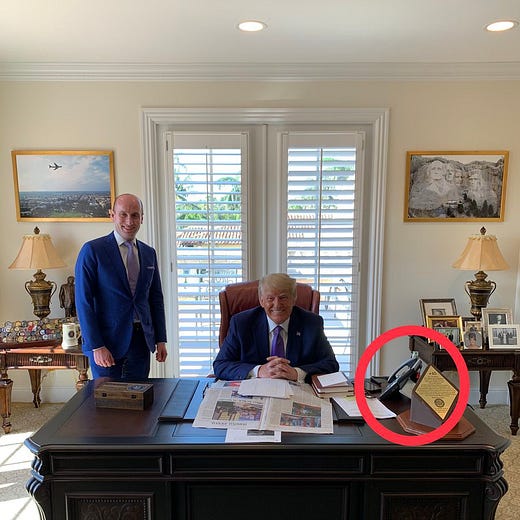What does "conservative unity" look like?
It's messy, for one thing.
Liberals in Georgia are enjoying their unity. Republican legislators have made it so easy for them to twist a little bit of truth into an elephant toothpaste fountain of lies, and they’re not even grateful for it. Add to that, a random event by a very troubled young man who targeted, shot and killed Korean American women at a series of spas around Atlanta being continually portrayed as the tip of an iceberg of white supremacy and anti-Asian hate in Georgia.
Add to that, removing coronavirus restrictions, which has led to Georgia Gov. Brian Kemp being cast as an uncaring anti-science hick by the media, and now also Florida Gov. Ron DeSantis being framed by “60 Minutes” selective editing to make it look like Publix supermarkets got a pay-to-play contract in disseminating vaccine doses.
Big corporations based in Georgia, Major League Baseball, Stacey Abrams message machine, and the White House are ganging up on Republicans and punishing their constituents for daring to elect them. There are calls for unity and pushback by conservatives, but what does that even look like?

It’s messy, for one thing.
Do we follow Texas Gov. Greg Abbott, who is symbolically boycotting MLB by refusing to throw out the symbolic first pitch at a Rangers game? Do we listen to Senate Minority Leader Mitch McConnell, who said business is acting like “a woke parallel government?”
Do we go running back to Daddy Trump, who suggested we boycott Atlanta-based Woke-a-Cola while hiding a bottle of Diet Coke behind his desk phone?
It’s messy, and it’s silly.
People are unlikely to boycott baseball, because it’s spring, we’ve been freaking cooped up for a year, and we want to get back to normal things. We’re also unlikely to boycott Coke, because, well, it’s Coke and unless you like even woker Pepsi more (“Diet Pepsi is battery acid”—me), you’ll drink it when it’s available.
See, the politics of business is what’s good for business. And being woke is better for business than being against wokeness. Conservatives have put themselves in the unenviable position of not being for anything, but being against whatever diarrhea the left is spouting. Except the left’s stream of excrement is coated in money and prizes. Money and prizes are popular and attract business.
Just like George W. Bush benefitted from a “good war” and massive defense budgets (what, you’re not patriotic?), and Donald Trump got plenty of corporate mileage from calling CEOs, the left today is basking in the sunshine of Joe Biden’s Cheshire Cat presidency. By that I mean Biden doesn’t govern, he just smiles and reads the TelePrompTer as he’s fed a steady diet of Obama/Harris leftist tripe.
Democrat “unity” is just a messaging front that only succeeds because there’s nothing substantive opposing it. Words from politicians and the pundit outrage machines offer nothing but messy blotches of paint on the wall and ink on the page.
As one commenter astutely remarked on my post yesterday that Democrats are winning the messaging war, if conservatives were for something, instead of being defined as what we’re against, maybe that would stick. But what does that look like?
What are conservatives for? Certainly not the irresponsible spending, insulting and thin-skinned fakery of Trump. Except that millions of Americans still think Trump is running the GOP (and he sort of, is), and look to him for direction. That drives candidates to be more “Trumpy” so they can win his endorsement. And that continues to fracture the GOP, and make conservatives ineffective against the left’s message onslaught.
There is no monolithic, or even multi-lithic (is that a word?) conservative movement in America. It’s a mess. But out of the mess, at some point, will emerge an issue that will unite people. Events tend to make these things appear as if the event made them rise ab initio (from the beginning), but in reality, the event simply provokes as reaction to give the movement some tension and something to which to adhere.
Right now, conservatives have nothing to adhere to, and liberals do.
I prefer it this way, the messy way. I prefer not to have fake outrage and demagogues dictating my “unity.” I am not in unity with all self-identifying conservatives on all issues. Hell, David Thornton and I probably can’t agree on our favorite candy bars, but we can agree on the big things (as in, “big” and “government” should be kept far apart).
One day, when conservatives offer an olive branch to Disney, Apple, and the other corporate denizens, to extract themselves from some breach of humanity committed by Russia (which is currently massing its army on the border of Ukraine), or China, then those companies will—as if by magic—come around and be friends with conservatives again. And liberals will threaten to boycott but appear silly in doing it.
Yes, these businesses will stay woke, because woke sells sugar water, silicon and glass hand warmers, and sneakers, but they will also wake up to the fact that others in this world prefer gulags, guns, and bullets to the head for their enemies.
American politics, and our current conservative “unity” is messy. But when we are threatened with actual tyranny, I’m pretty sure we find the mess cleans up pretty quickly.
The mess, therefore, is a sign that conservatives don’t really have a whole lot to complain about except the playground cry of “kooties!” I never liked the All-Star game anyway, and I rarely drink Coke. So consider me a boycotter without the outrage.
If you haven’t subscribed to the Racket yet, click the button below to do so while it’s still free. And remember, with the Racket you get MORE than what you pay for!
You can also find us on Twitter and Facebook. Join the discussion online with our Racketeers Facebook group.
The Racketeers are Jay, Steve, and David. Click each name to contact us on Twitter!
As always, we appreciate shares. If you see something here that you like, please send it to your friends and tell them that all the cool kids read the Racket!







I think that there are a couple of nuggets that serve as a starting place for conservative unity:
1. Subsidiarity: Sometime around the time when the GOP talked about revoking California's air quality standards, it was clear that the national party could care less about the principle of pushing as much governance to the local levels as makes sense. I have Democratic friends who are unabashed supporters of centralizing and federalizing policy ("shouldn't folks in Alabama have the exact same opportunities as people in California?"), and I think that there's an opening for a clear message that you and your community know what's best for you - not Washington.
For this to work, the GOP has to get rid of its addition to outrage and smile and let Blue areas be Blue, while arguing that Red areas should be Red. When Evanston, Illinois announces that they want to start providing reparations, instead of making a Dreher-esque cry that this is the first step to America's version of the Spanish Civil War, conservatives should say something along the lines of "good for them, let's see how it plays out". The GOP needs to start being the explicit party of the "laboratories of democracy", and be up-front about the trade-offs of more local government while highlighting the benefits of it.
2. "Made in the USA": One of the things that I think Trump got right was that we need to get back to making (more) things in this country as opposed to relying on international imports. While I'm as big of a fan of global free trade as anyone else, I would appreciate an effective set of policies that brought more Americans back into manufacturing and design, producing goods locally that are purchased and used by their fellow Americans.
There are a couple of things floating around the conservative noosphere such as incentivizing schools to bring back shop class, treating vocational education with the same financial support and prestige that we give to folks attending universities, and providing local incentives (subsidies) to buy local. I feel like these can be brought under one "Made in the USA" umbrella as an effective counter-message against Democrats. However, it needs to be done under the understanding that this isn't about subsidizing substandard American producers to compete with stronger competitors overseas, but rather in raising the quality of the American Maker to a point where American quality not only inspires local purchases, but out-competes our foreign competitors when put up in a head-to-head comparison.
It's the Hundred Grand by the way. I would have said Reese's Peanut Butter Cups (accept no imitations!) but they're aren't technically a bar.